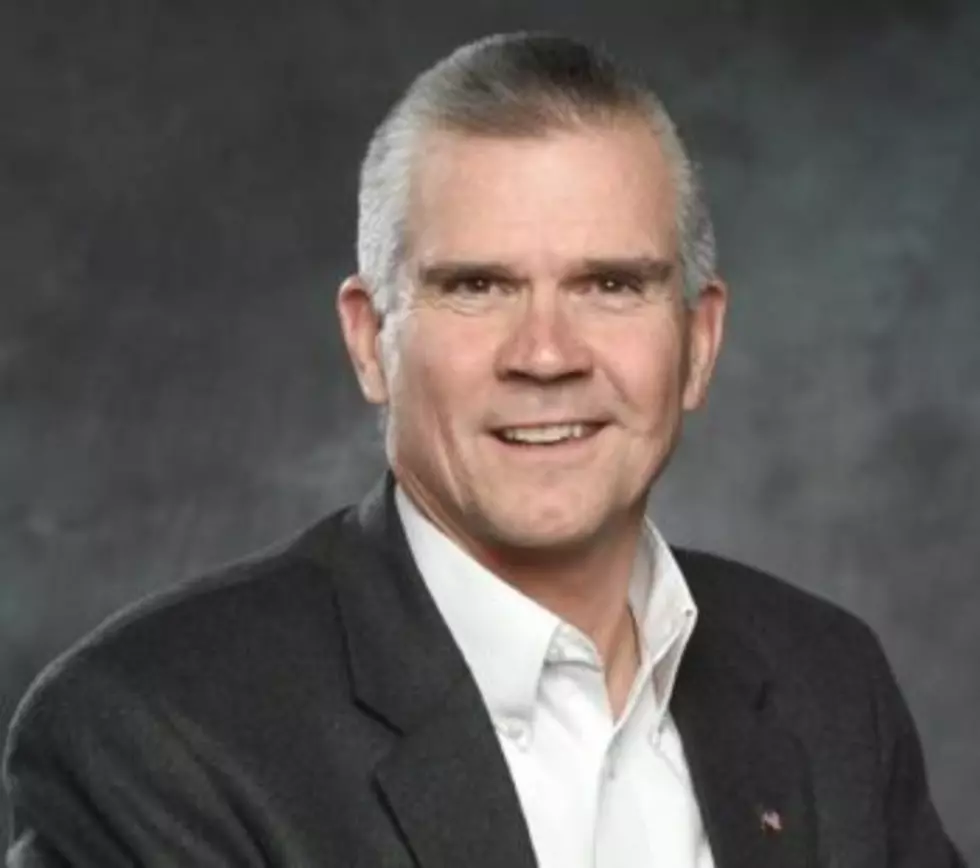
Attorney, Montana nurses question Rosendale’s approval of “fraudulent” Medi-Share
An attorney, a state representative and the head of the Montana Nurses Association on Wednesday accused Insurance Commissioner Matt Rosendale of deceiving state residents by allowing a once-banned health-care ministry back into the state, and disguising it as a legitimate option to a regulated insurance policy.
The program, known as Medi-Share, is a Florida-based health-care sharing ministry that's not required to cover preexisting conditions. Montana's former Insurance Commissioner, John Morrison, banned Medi-Share from Montana in 2007 due to fraudulent practices.
But Rosendale allowed the program to return last year. Rosendale is challenging Sen. Jon Tester for his seat in the U.S. Senate, and his campaign didn't immediately respond Wednesday to a request for comment.
Wednesday's media call was organized by Tester's campaign.
“It's very fraudulent, and I'm very disappointed Matt Rosendale would bring this back into Montana,” said state Rep. Marilyn Ryan, D-Missoula. “It was shown to be fraudulent. It's been fraudulent in other states. There's no room in Montana for this type of plan. It's not insurance.”
The program accepts members who can prove they're living a “Biblical” lifestyle in accordance with the Christian faith. Since it's unregulated, Medi-Share isn't required to cover preexisting conditions, and it can deny claims for little reason.
Back in 2007 when Morrison banned Medi-Share, he found the ministry had collected more than $55 million from members nationwide. The organization violated several Montana laws at the time – violations Morrison described as fraud perpetuated on the ministry's members.
One of those members was a client of Michael Cok, a Montana attorney who took on Medi-Share in 2007 in an attempt to recover payments the ministry had denied to a Montana father and husband with cancer.
“He had been a participant in Medi-Share for a period of time, about four years, and he came to us because they refused to pay,” Cok said. “At that time, it was marketed as insurance. They sent a plan out that looks like most of your plans would look.”
Cok said the product is primarily marketed to evangelical associations, or those who live a faith-based life. But it never was registered as an insurance company, and funding was held in an off-shore account in the Bahamas, making it hard to recover payments.
“There was no recourse when they (Medi-Share) didn't pay,” said Cok. “When you read the small print of their plan, they don't have to pay. They don't have to cover preexisting conditions. It's pretty much discretionary, but cancer doesn't wait for approval or lawsuits.”
Cok, one of three members on Wednesday's call, said his client's mother-in-law was forced to mortgage the family ranch to cover his urgent treatment. He called the program shady, illusionary coverage, and questioned why Rosendale would allow it to return to Montana after it was banned for fraudulent practices.
“Commissioner Rosendale should not have approved it,” Cok said. “I don't see any reason to put it back on the market or allow it to do business here in Montana where it can damage vulnerable people, and where it doesn't have to pay for serious injuries.”
Rosendale's approval of Medi-Share also concerns Vicky Byrd, executive director of the Montana Nurses Association. While Rosendale has billed Medi-Share as a legitimate, non-insurance alternative to regulated health insurance, Byrd said it's anything but.
Rather, she said, the program jeopardizes patient access to legitimate, quality health care.
“Medi-Share plans undermine all of the Affordable Care Act's consumer protections,” Byrd said. “These plans don't qualify as insurance, and there's no guarantee the patient's claims will get paid when they need that medical care.”
Byrd believes Rosendale's approval of Medi-Share is an attempt to undermine the ACA. She said the program is deceptive, however, and will only leave patients vulnerable.
“These plans will only empower those who are looking to undermine the ACA – those who wish to return to the days when insurance companies could charge whatever rates they wanted and deny coverage for preexisting conditions, or refuse to pay for necessary medical care and essential benefits,” she said. “This all will drive up uncompensated care.”
